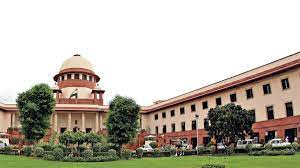(A) Constitution of India, Article 14, 226 – Public Interest Litigation – Tender matter – Respondent no. 1, the writ petitioner, is an interested party – It had supplied cardamom to the appellant-Board for the year 2021-2022 – It had also participated in the two tenders released by the appellant-Board, which later came to be cancelled – Although this information has not been concealed, it is quite evident that the writ petitioner was interested in the outcome of the writ petition – The second prayer in the writ petition is for cancellation of the purchase of cardamom from respondent no. 2. – This prayer makes it clear that the real grievance is about the grant of contract in favour of respondent no. 2 – Held that High Court should not have entertained the writ petition on behalf of an interested person who sought to convert a judicial review proceeding for enhancing personal gain – High Court should have dismissed the Writ Petition on the question of maintainability itself. (Para 21 and 23)
(B) Constitution of India, Article 14, 226 – Public Interest Litigation – Tender matter – Writ petitioner also challenged the manner in which the cardamom was sourced – Appellant-Board initially tried to purchase cardamom by issuing tenders and calling for bids, not just once, but twice over – However, these tenders were cancelled since none of the bidders supplied cardamom of appropriate quality – It is in these compelling circumstances, considering the impending festive season and the imminent need to prepare a humungous quantity of Aravana Prasadam, that the appellant-Board invoked the urgency clause in its regulations and authorised the Chief Executive Officer of the Sabarimala Temple to procure cardamom from local sources – Held that it cannot be said that the decision is arbitrary, irrational or unreasonable. – There is neither arbitrariness nor malice in the decision of the appellant-Board as all the prospective bidders were given a fair chance as the notice to purchase cardamom was published on the notice board – The cardamom samples submitted by the bidders were then tested in a nearby lab, which was also established by the Commissioner of Food Safety as per an order of the High Court – Thereafter, price negotiations were conducted, and respondent no. 2 was given supply orders after quoting the lowest rates – Decision of the appellant-Board held to be legal, fair and transparent – High Court committed an error in entertaining the writ petition filed by respondent no. 1. (Para 22)
SUPREME COURT OF INDIA
2024 STPL(Web) 204 SC
[2024 INSC 183]
Travancore Devaswom Board Vs. Ayyappa Spices And Others
Civil Appeal Nos. 3866-3867 of 2024 (Arising Out of SLP (C) Nos. 10361-10362 of 2023)-Decided on 06-03-2024
https://stpllaw.in/wp-content/uploads/2024/04/2024-STPLWeb-204-SC.pdf







